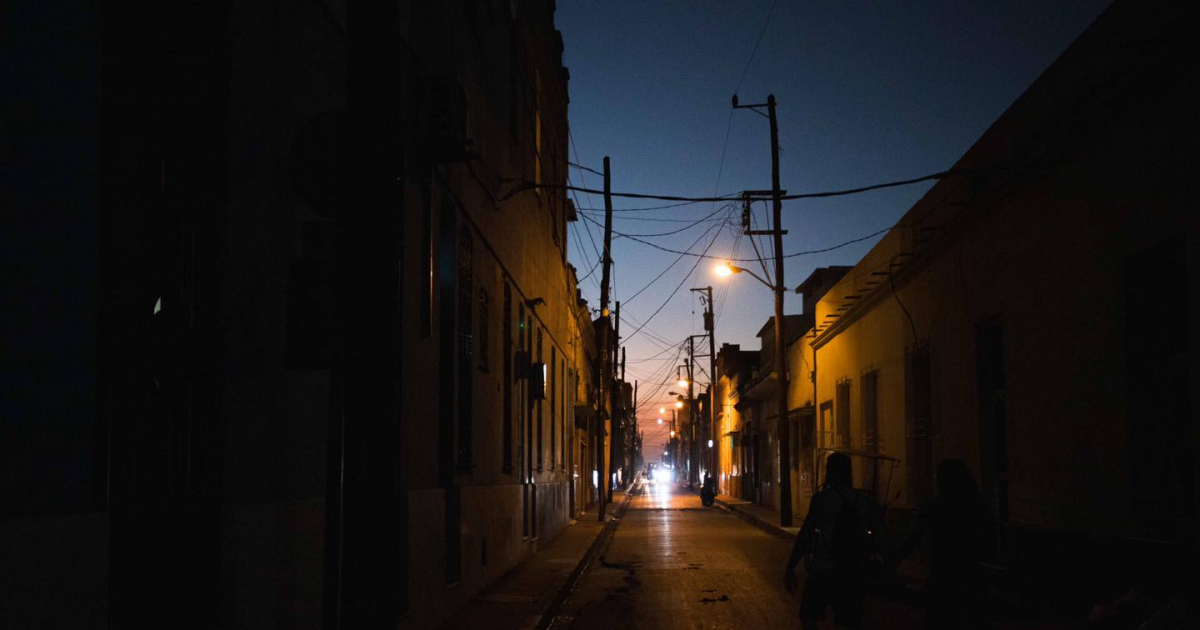In the midst of Cuba's escalating energy crisis, the province of Camagüey is experiencing an especially severe phase. The situation is so unpredictable that authorities have warned there is no guarantee of a fixed blackout schedule. Efforts are being made to adhere to a rotation of nine hours without power followed by three hours with electricity.
During the latest meeting of the Enlarged Energy Council, it was declared that no circuit will receive special protection. Institutions and businesses are urged to operate when electricity is available, emphasizing the need for remote work. This directive starkly contradicts the recent measures by the telecommunications monopoly ETECSA, which have limited internet access for most Cubans. Once the meager data packages are exhausted, users must rely on costly recharge plans in Cuban Pesos (CUP) or foreign currency, despite the majority earning in local currency.
According to the state-run newspaper Adelante, Camagüey is taking further steps: mass visits to over 27,000 households with no recorded consumption will be conducted, along with inspections of 627 private businesses and 1,915 state entities. High or suspicious energy consumption will also be scrutinized through cross-analysis of electric bills to detect potential fraud.
The penalty is clear: any entity, whether state-run or private, exceeding their assigned energy plan will face service cutoffs. The duration of these cutoffs will be determined by each Municipal Energy Council. Camagüey's governor, Jorge Sutil Sarabia, emphasized that "electricity is a resource of the Cuban state subsidized for the population." Although the fuel is purchased in dollars, the charges remain in the national currency. Sutil did not address the fact that citizens do not earn foreign currency and neglected the government's responsibility for the deterioration of the thermal power plants and their maintenance.
In March 2024, a 25% increase in the price per kW/h for heavy consumers, defined as those using over 500 kW/h monthly, took effect. The government justified this as a "savings measure." This rate hike for "large consumers" is part of the contentious economic measures introduced by the Cuban regime to "correct distortions and boost the economy," which also included price increases for fuel, water, and gas, among others. These hikes have inevitably impacted the prices of services and goods, many of which are essential for Cubans.
Cuba's energy crisis deepens, plunging the population into prolonged blackouts. The precarious energy situation not only diminishes the quality of life but also severely disrupts the functioning of hospitals, schools, businesses, and any economic activities. With no effective solutions in sight and summer approaching, the power crisis is expected to worsen, potentially sparking new social unrest and protests like those recently witnessed across the country.
The Carlos Manuel de Céspedes power plant's Unit 3 in Cienfuegos remains offline following a breakdown on Wednesday, merely weeks after being connected to the national grid. This unit is crucial for frequency regulation in the western and eastern regions.
The Cuban leader, Miguel Díaz-Canel, continues to deflect self-criticism regarding the energy crisis plaguing the nation. He attributes the blackouts to increased electricity consumption and maintains that the government's strategies have been "correct," although their impact is not visible due to external factors, such as fuel shortages.
Understanding the Energy Crisis in Camagüey
What measures are being implemented in Camagüey to address the power crisis?
Camagüey has announced no circuits will be protected. Institutions and businesses are encouraged to work around electricity availability, promoting remote work despite limited internet access due to ETECSA's policies. Inspections are scheduled for households and businesses with no recorded consumption or high usage, with potential service cutoffs for those exceeding their energy plans.
How does the increased cost of electricity affect consumers in Cuba?
The government has increased the electricity price by 25% for heavy consumers, impacting those using over 500 kW/h monthly. This increment, part of broader economic adjustments, adds to the financial strain on Cubans, as it coincides with price hikes for essential services like fuel, water, and gas.
